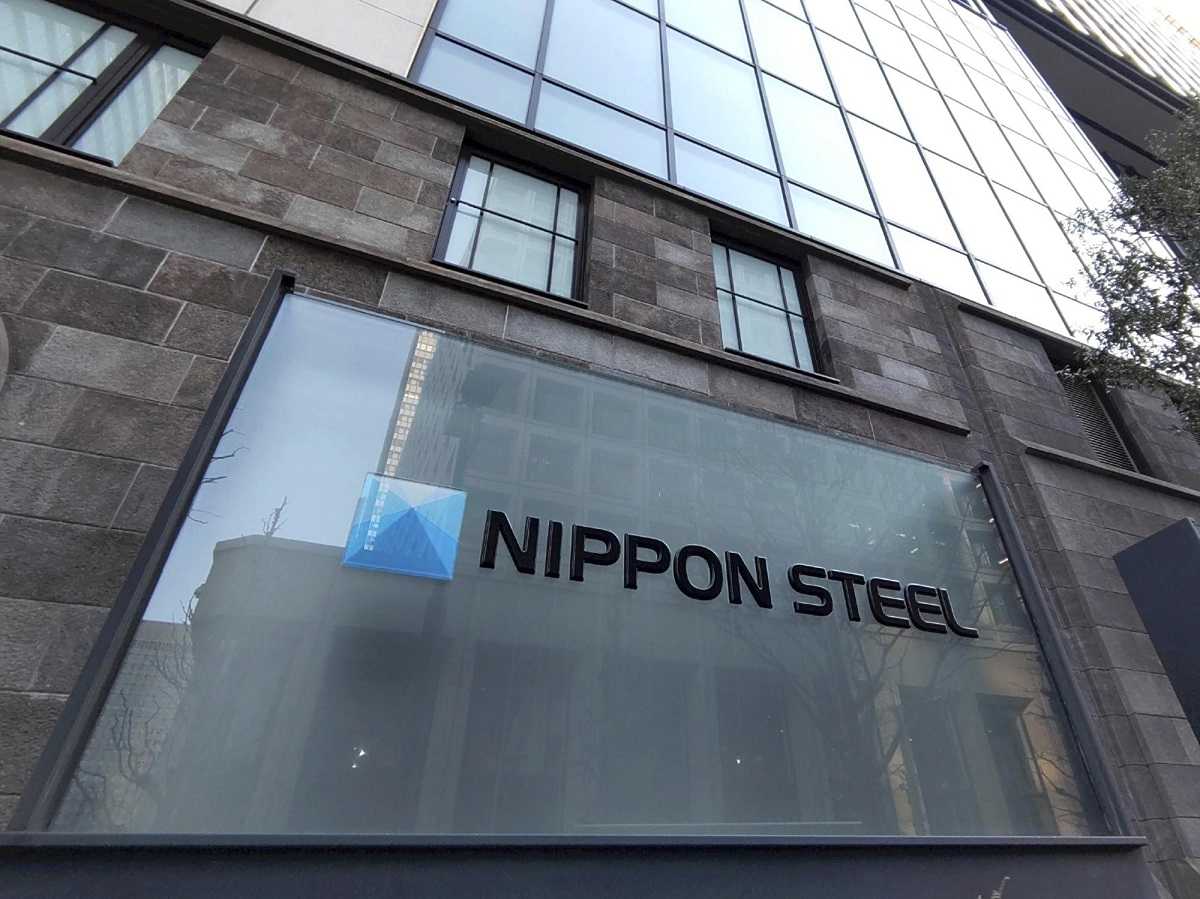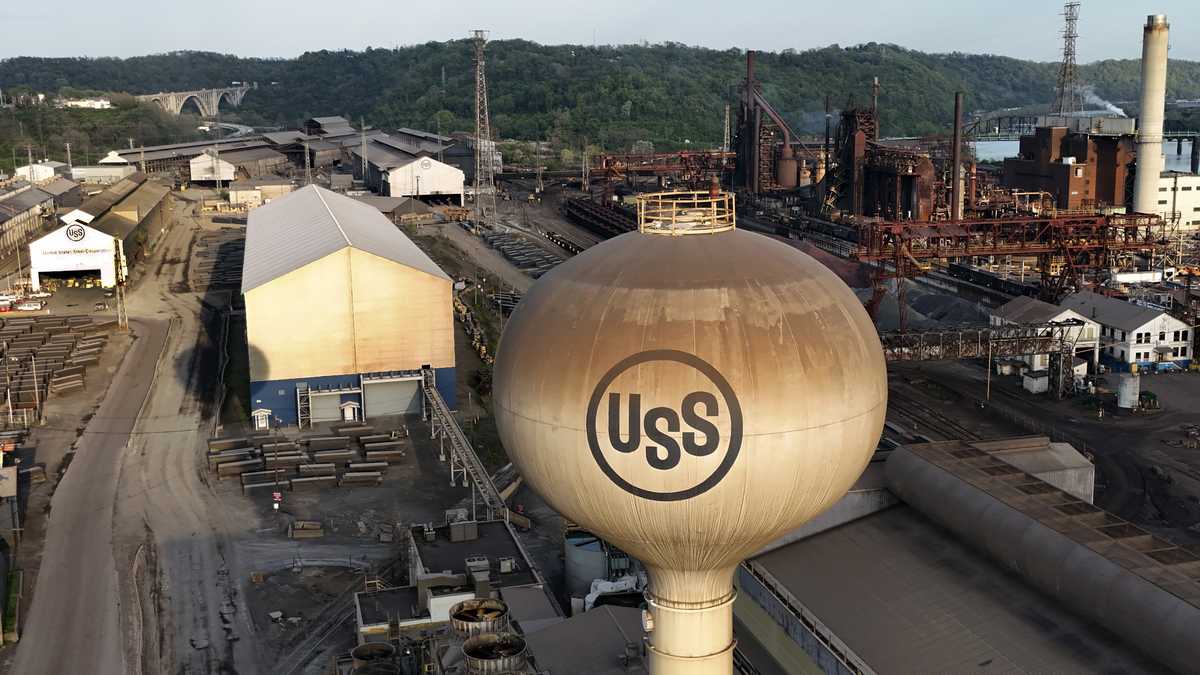Nippon Steel May Need to Overhaul Growth Strategy; Developing Overseas Markets Vital to Company’s Survival

Nippon Steel Corp.’s logo at the company’s headquarters in Tokyo.
17:31 JST, January 5, 2025
Nippon Steel Corp. has stepped up preparations to sue the U.S. government in a bid to realize its planned acquisition of United States Steel Corp., in response to President Joe Biden’s decision to block the purchase.
Nippon Steel has established the “100 Million Tons/1 Trillion Yen” vision for its global crude steel production capacity and business profit. Developing the U.S. market is indispensable for the Japanese steelmaker to achieve this goal.
If Nippon Steel has to give up on acquiring U.S. Steel, it would have no option but to drastically revise its growth strategy.
Nippon Steel is facing a continuing decline in demand for steel products at home. Therefore, the development of overseas markets is a matter of survival for the Japanese company.
India and Southeast Asia are booming economically, and their markets are expected to expand in terms of quantity. In contrast, Nippon Steel sees the United States as a market where quality is pursued and has drawn up a strategy to sell products with high profitability. This is partly aimed at dealing with Chinese steelmakers, which are said to be overproducing steel products.
In contrast, U.S. Steel is said to be close to selling itself off amid the difficulty of restructuring on its own. The acquisition offer from Nippon Steel, which guaranteed that facilities would be upgraded and workers kept on, was a once-in-a-lifetime opportunity for U.S. Steel.
The two companies are likely to file a lawsuit against the U.S. government, questioning a violation of due process among other issues.
“If the lawsuit is for the purpose of exploring future strategies, that’s fine, but the chances of overturning the [Biden] decision are quite slim,” said Takashi Imamura, an expert on U.S. politics at the Marubeni Institute. “It might be a good idea for them to come up with another plan.”
Among U.S. Steel’s facilities, Nippon Steel saw as especially promising its blast furnaces and electric furnaces that extract raw materials for steel products from iron ore and steel scrap. Even if Nippon Steel cannot buy U.S. Steel, the Japanese company can still expand its electric furnace business through a U.S. joint venture with which it is already constructing electric furnaces.
“Even if the acquisition is blocked, that doesn’t mean that Nippon Steel will withdraw from restructuring the U.S. market. Opportunities will remain,” Imamura said.
Top Articles in Politics
-

Japan PM Takaichi’s Cabinet Resigns en Masse
-

Sanae Takaichi Elected Prime Minister of Japan; Keeps All Cabinet Appointees from Previous Term
-

Japan’s Govt to Submit Road Map for Growth Strategy in March, PM Takaichi to Announce in Upcoming Policy Speech
-

LDP Wins Historic Landslide Victory
-

LDP Wins Landslide Victory, Secures Single-party Majority; Ruling Coalition with JIP Poised to Secure Over 300 seats (UPDATE 1)
JN ACCESS RANKING
-

Producer Behind Pop Group XG Arrested for Cocaine Possession
-

Japan PM Takaichi’s Cabinet Resigns en Masse
-

Japan Institute to Use Domestic Commercial Optical Lattice Clock to Set Japan Standard Time
-

Man Infected with Measles Reportedly Dined at Restaurant in Tokyo Station
-

Israeli Ambassador to Japan Speaks about Japan’s Role in the Reconstruction of Gaza
























